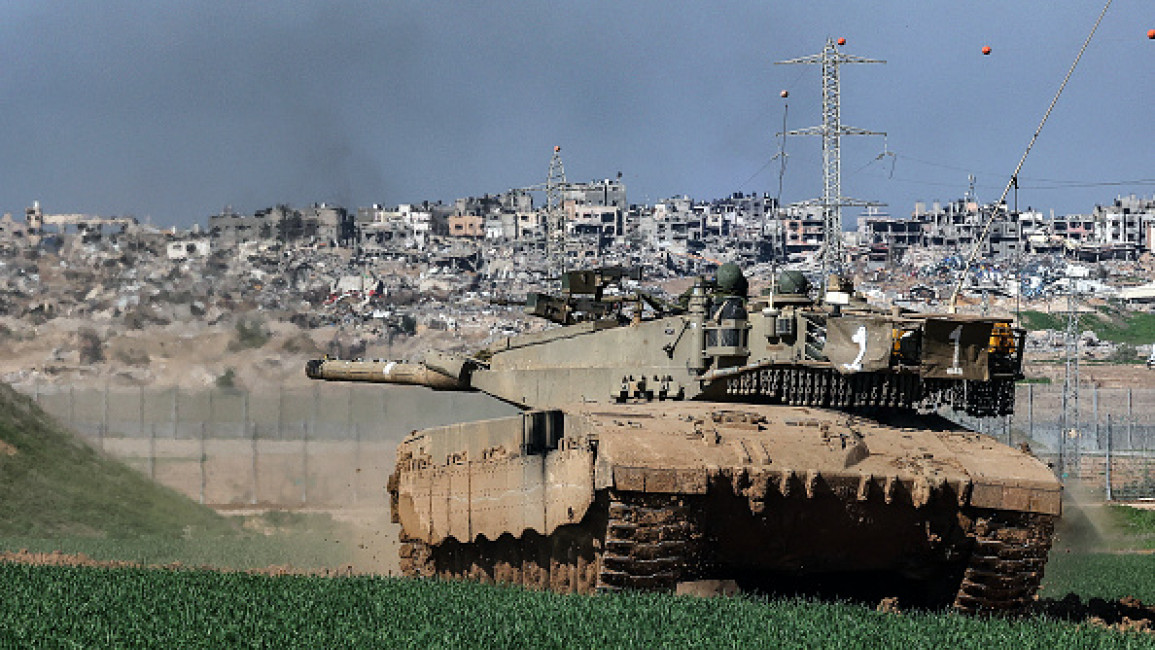Arab initiative seeks Palestinian statehood in return for normalising ties with Israel
An initiative to secure a ceasefire in Gaza and release Israeli hostages is being discussed between Arab states as part of a wider deal which would see them normalise ties with Israel – only if it guarantees Palestinian statehood, the Financial Times has reported.
The plan could be presented within "a few weeks," FT said, quoting a senior Arab official. It aims to prevent a wider regional conflagration, as tensions brew on several fronts.
Regional powerhouse Saudi Arabia, which suspended normalisation talks with Israel at the onset of the Gaza war, could be among the states that officially recognise Israel, if Tel Aviv agrees to the plan.
The kingdom’s foreign minister said during the World Economic Forum annual meeting in Davos this week that Riyadh was prepared to recognise Israel, only if Tel Aviv took steps to recognise a Palestinian state.
Israel, backed by its main ally the US, has been keen on forging ties with Saudi Arabia, the Arab world’s biggest economy and home to Islam’s holiest sites.
Israel already shares ties with six Arab states; Egypt, Jordan, the United Arab Emirates, Bahrain, Morocco, and Sudan, despite wide popular condemnation.
Western nations would also have to formally recognise Palestine as a state, as per the initiative, or at least support Palestinians being granted full membership at the UN, FT said.
The US administration has repeatedly expressed support for a "revitalised" Palestinian authority, with Gaza and the occupied West Bank rejoining under a united government.
The Fatah-run Palestinian Authority controls parts of the West Bank while Hamas runs Gaza.
But Israel’s far-right, including Prime Minister Benjamin Netanyahu, has said it was completely opposed to a sovereign Palestinian state and wants to continue building illegal settlements in the West Bank.
Some Israeli officials have called for the expulsion of Palestinians from Gaza to make way for Jewish Israeli resettlement.
There is mounting pressure on Israel to end the war. But Netanyahu has said Israel will continue to fight in Gaza "until all goals have been achieved," as he has vowed to crush Hamas.
Analysis: The US is not just a supporter of Israel's war, it has actively facilitated it through military planning, arms supplies, and vetoes at the UN
— The New Arab (@The_NewArab) January 18, 2024
In Gaza, the US is an active partner in Israel's war ⬇️
✍️ @GiorgioCafierohttps://t.co/8qU4gSiGbv
Israel’s air and ground offensive have killed close to 25,000 people, mostly civilians, since October 7.
The Israeli operation came the day Hamas launched a surprise attack in southern Israel, killing an estimated 1,100 people. Hamas said its attack was in response to Israel's decades-long blockade of Gaza and aggression towards Palestinians.
Over 250 hostages were also taken by Hamas, some of whom were swapped for Palestinian prisoners as part of a short-lived truce reached in November.
There have been growing concerns that the Gaza war could escalate into a full-blown, regional conflict.
Lebanon’s powerful Hezbollah group has been involved in fierce cross-border clashes with the Israeli military since October, Yemen’s Houthi group have targeted Israeli-owned or Israel-bound ships in the Red Sea, and Iran-backed militias have targeted US forces in Iraq and Syria.
Senior Hamas, Hezbollah, Iraqi and Iranian commanders have also been assassinated in Israeli and US strikes or bombings.



